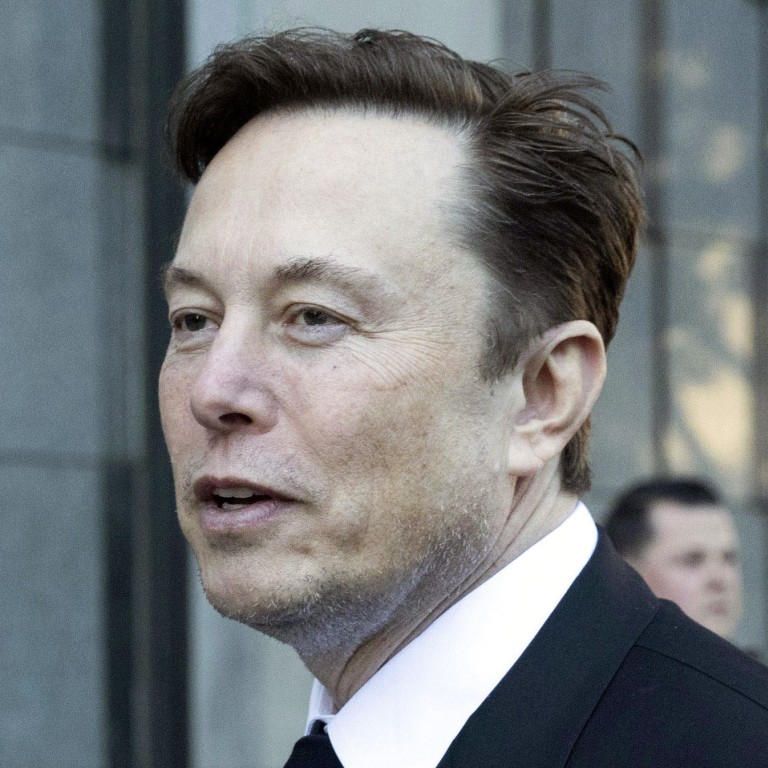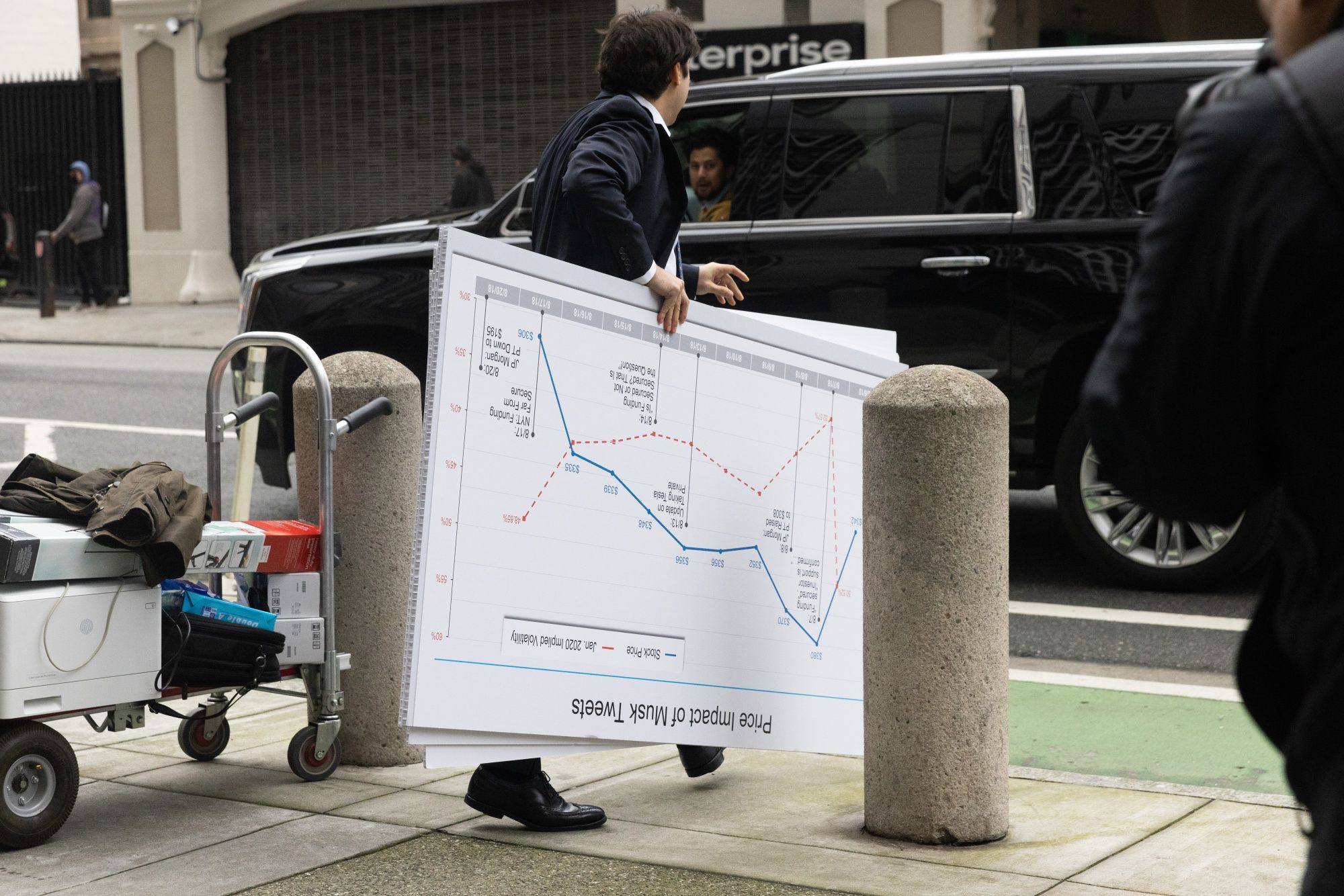
Elon Musk found not guilty of fraud over Tesla tweet
- Plaintiffs had sought billions in damages in the high-profile case over Musk’s tweets in 2018 about lining up funding to take his electric car company private
- Tesla’s stock price soared after the tweets and then fell again as it became clear the buyout would not happen
A US jury on Friday found Tesla CEO Elon Musk and his company were not liable of securities fraud case in a high-profile case over Musk’s tweets in 2018 that he had lined up funding to take the electric car company private.
Plaintiffs had claimed billions in damages and the decision also had been seen as important for Musk himself, who has aggressively defended his ability to tweet broadly.
The jury came back with a verdict roughly two hours after beginning deliberations.
The world’s second-richest person has previously created legal and regulatory headaches through his sometimes impulsive use of Twitter, the social media company he bought for US$44 billion in October.
Musk’s attention has been divided in recent months between Tesla, his rocket company SpaceX and now Twitter. Tesla investors have expressed concerns that running the social media company has taken up too much of his focus.
Tesla shareholders claim Musk misled them when he tweeted on August 7, 2018, that he was considering taking the company private at US$420 per share, a premium of about 23 per cent to the prior day’s close, and had “funding secured”.
They say Musk lied when he tweeted later that day that “investor support is confirmed”.
The stock price soared after the tweets and then fell again after August 17, 2018, as it became clear the buyout would not happen.
US investigation into Tesla self-driving claims intensifies
A lawyer for the shareholders told jurors that the billionaire CEO is not above the law, and should be held be liable for the tweets.
“This case ultimately is about whether rules that apply to everyone else should also apply to Elon Musk,” the shareholders’ lawyer Nicholas Porritt said during closing arguments.
An economist hired by the shareholders calculated investor losses as high as US$12 billion.
During the three-week trial, Musk spent nearly nine hours in the witness box, telling jurors he believed the tweets were truthful. He said he had lined up the necessary financing, including a verbal commitment from Saudi Arabia’s sovereign wealth fund, the Public Investment Fund. The fund later back-pedalled on its commitment, Musk said.

Musk later testified that he believed he could have sold enough shares of his rocket company SpaceX to fund a buyout, and “felt funding was secured” with SpaceX stock alone.
Musk testified that he made the tweets to put small shareholders on the same footing as large investors who knew about the deal. But he acknowledged he lacked formal commitments from the Saudi fund and other potential backers.
He said his tweets in general did not always affect Tesla stock the way he expects.
“Just because I tweet something does not mean people believe it or will act accordingly,” Musk told the jury.
Elon Musk defends Tesla buyout tweets at fraud trial
Musk’s lawyer Alex Spiro said that Musk’s “funding secured” tweet was “technically inaccurate” but that investors only cared that Musk was considering a buyout.
“The whole case is built on bad word choice,” he said. “Who cares about bad word choice?”
“Just because it’s a bad tweet doesn’t make it fraud,” Spiro said during closing arguments.

